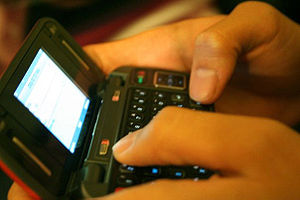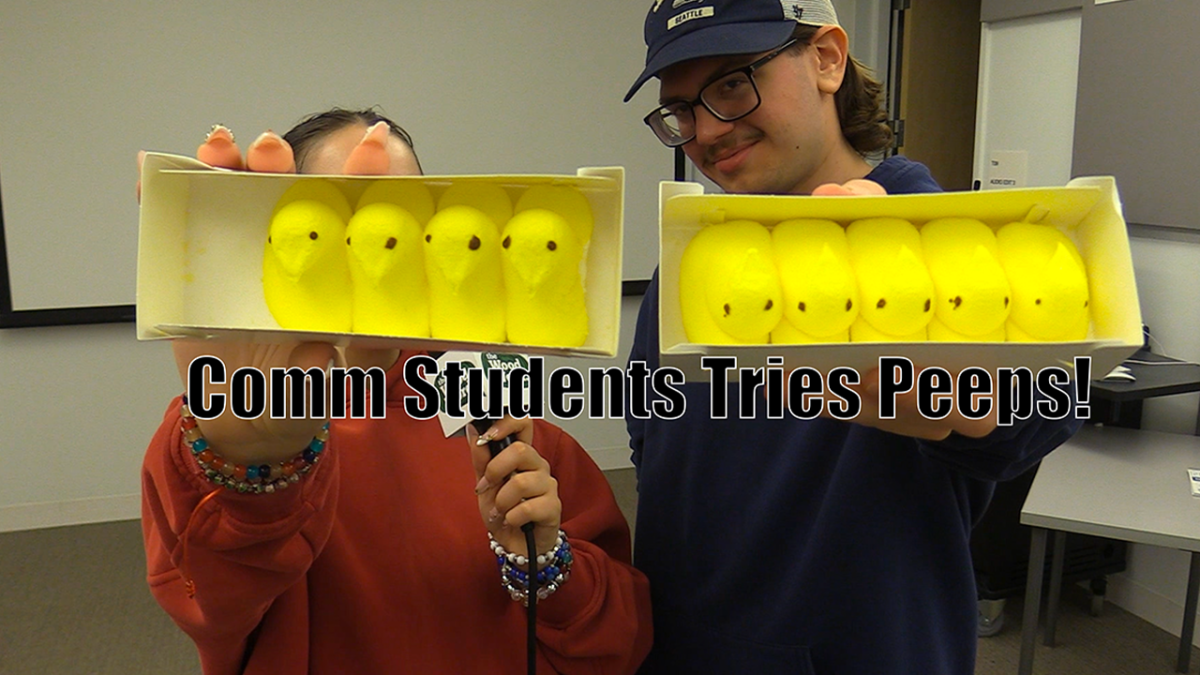
- Image via Wikipedia
Kelly Rickert
Staff Writer
Today’s technology allows people to communicate in mere seconds. With email, Twitter, or Facebook being delivered straight to cell phones, it is easier than ever to send and receive urgent messages at a moment’s notice. Yet, emails or phone calls regarding a professional inquiry, a class assignment, or other “professional” messages often go with no response. They are simply ignored, often with the excuse, “I never got the message.”
But why is this so commonplace? Why is it acceptable for co-workers, businesses, professors, or even students not to answer emails or return phone calls?
In college, most students check their Facebook every day, or multiple times a day. So, it’s safe to assume that they can check their email daily as well. Yet, if they receive an email from a professor about a class, an assignment, or a meeting, oftentimes, they may not even respond. Or if they do, they do so in a very unprofessional way. Students may reply, but use no greetings, or forget to sign their name at the end; they treat it like an IM to a friend, rather than an important message to someone to whom they should show respect.
However, students are not the only ones who do this. It seems that professors ignore emails from students just as frequently – if not more often. Although professors may not be on the Internet as often as students, they should still attempt to read and respond to messages from their students in a timely manner.
One example of this lack of response recently happened to a sophomore Marywood student, Eve Collins. She was trying to reach her professor about a project for class. She was scheduled to present a PowerPoint project that was on her computer, however, the week before the presentation, her computer crashed. She took it to be repaired, but she did not have her project for class. She borrowed a friend’s computer to email the teacher and explain the situation. However, after a few days, the professor had not responded. So, she emailed her again, and still, no response.
She then called the professor and left a voicemail which received no response, yet again. Ms. Collins said, “It was an extremely frustrating situation to be in, especially because the night before the class, I still had not heard from her. I wasn’t sure how to handle the situation.”
When she went to class, her teacher had received her messages and was understanding of the situation. However, the lack of response caused quite a bit of undue stress on the student.
Unfortunately, this type of disrespect extends far beyond college campuses. All sorts of businesses and people in the professional world do not respond to emails or phone calls in a timely manner, or may not ever respond. This is probably because it is very easy to ignore someone who is not standing right there.
However, in the business world, it is crucial to respond to professional communications. According to an article in the September issue of Public Relations Tactics, professionals “have lost a level of professional courtesy regarding timely responses to professional e-mail and voice messages.” The author states that respond = respect.
Responding courteously, promptly, and accurately will help a business person to develop a professional image, “that will position you as open, honest and responsive.” Doing so will help any professional form, “maintain and solidify professional relationships that will be extremely valuable throughout your career.”
However, if a person does not respond to important messages, this may impair their image and their business’s image. (“The Death of Common Courtesy? Why responding to all Communications is a Must.” September 2010. Public Relations Tactics.)
So, is common courtesy dead? Is it really acceptable for people to ignore important or professional messages? In order to be successful in anything, it is crucial to develop good professional relationships, and maintain them.
One way to do this is to respond efficiently and accurately in order to sustain a good image. This, however, should not be put off until entering the professional workplace.
It begins by responding to professors, classmates, or others in a courteous and swift manner, done often enough it will become second nature. This kind of response shows respect and will help develop the image of a professional, before even entering the workplace, which will help with recommendations and put you ahead of the game in the professional world.










